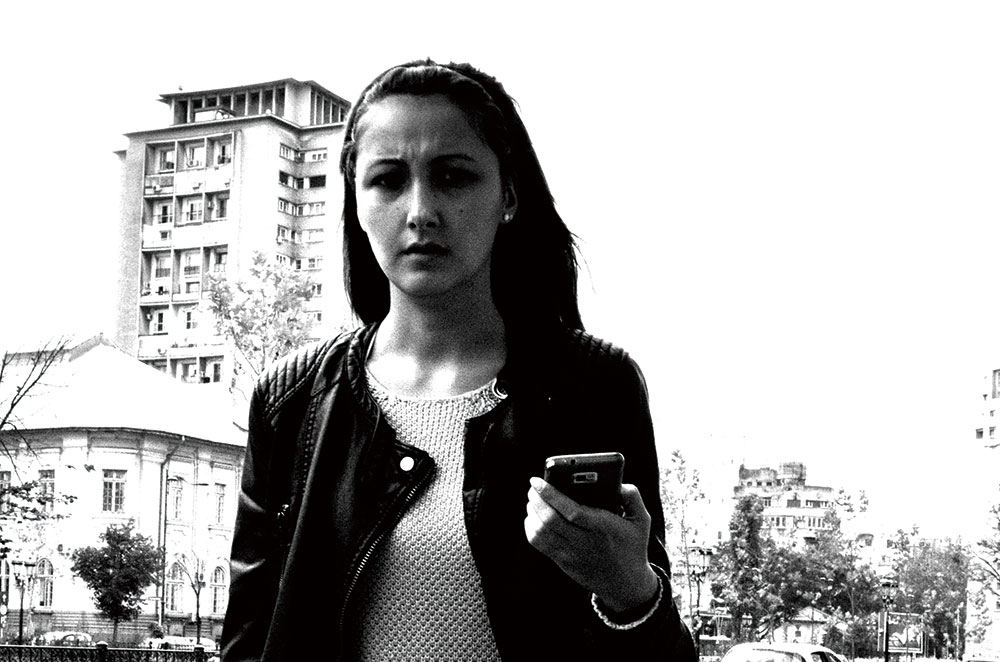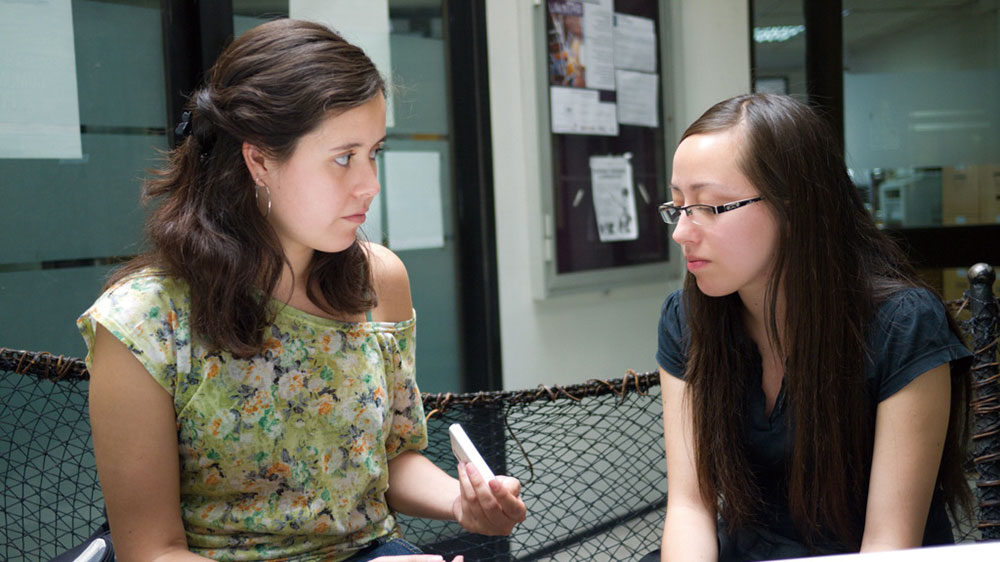“The hacker demanded that one of the girls in the group send him explicit pictures, and threatened to post photos of her if she didn’t. When she didn’t respond, he posted hardcore pornography on the group account.”
To the typical teenager, nothing is more important than their circle of friends, and the internet offers a whole new range of ways for them to interact with each other. So it’s not surprising that young people spend so much of their time online – an average of nine hours a day, according to a 2015 report.
 For Lee (name changed), a 13 year old student at a Beijing international school, that nightmare became a reality. He and his mother talked to beijingkids about what happened.
For Lee (name changed), a 13 year old student at a Beijing international school, that nightmare became a reality. He and his mother talked to beijingkids about what happened.
They had spent a relaxing Saturday as a family at a hot spring spa, their smartphones locked away for a few hours of undisturbed peace. When he switched on his phone at dinner that evening to check WeChat, he couldn’t believe what he saw.
“What’s the matter with you?” his friends were asking him. “Why would you say such horrible things?”
At first he was mystified, but friends pointed him to a Skype group, which he had set up with his classmates in 4th grade, for work on class projects. The group was mostly inactive, but still had over 40 members. Now someone using Lee’s name and picture had joined the group and was posting vile insults about other members, including racist and sexual abuse.
Lee pleaded his innocence to his friends, but many disbelieved him. His mother Jane posted a message on WeChat, explaining that he had been without his phone all day, and therefore he couldn’t have been responsible. However her intervention was met with cynicism: “You don’t need your mom protecting you” was one typical comment.
Lee was devastated. “I was panicked, in tears,” he tells me. “My life was over.”
Jane contacted a relative who worked in IT and asked what they could do, but the answer was not hopeful. “If the person was using email you could check the IP address from which it was sent,” she was told, “but in situations like this you have to ask the person questions, try to find out about them.”
Another relative began to play detective, and friended the fake Lee. The hacker responded with more unpleasant abuse, and revealed that he knew who the relative was, giving personal details about the family.
It was becoming increasingly apparent that the hacker was someone who knew Lee in real life, and the circle of suspects soon narrowed.
“On the Friday afternoon, after we got out of school,” Lee told me, “a few of us went skateboarding. The fake me stated things that had happened then, mentioned a new trick I’d learned that day. There were only six or seven of us.”
There were other clues too: words which the hacker misspelled in a distinctive way. Lee’s suspicion began to fall on a classmate who had once been a good friend, but from whom he had drifted apart as they got older.
However the online abuse had worsened. A friend’s mother contacted Jane.
“What is your son doing?” she asked. Jane responded that Lee had been sitting with her, so he couldn’t have
done anything wrong.
 “Have you seen the recent photos?” the friend’s mother said. “When you get home look at the photos.”
“Have you seen the recent photos?” the friend’s mother said. “When you get home look at the photos.”
They soon discovered what she meant. The hacker had demanded that one of the girls in the group send him explicit pictures, and threatened to post photos of her if she didn’t. When she didn’t respond, he had posted hardcore pornography on the Skype account.

For tips on keeping safe online, we talked to Morgan Grice, cybersecurity expert and Beijing dad.
“Social media is a great way to keep in touch with friends and what is going on in the world,” he told us. “However it is important that we consider our privacy. When using social media you should be aware of your audience and who has visibility of what you post. Make sure to go into privacy settings to ensure only your friends and family can view and comment on your posts. It’s not a good idea for personal information like school name, phone numbers or date of birth to be publicly displayed on their online profile.”
Young people love to take pictures of themselves and others, and share them online. We asked what they should consider before posting.
“When posting a photo of others, it is important that you have that person’s permission to do so. Images can easily be saved, shared, and used by an online bully in a bad way, so it is very important that embarrassing photos are only shared if you have full approval by the people that appear in it. A tip here is to make sure you set your privacy setting so that you have to approve any post where other users have tagged you. This way you can filter out any embarrassing or unwanted photos that you do not want online. Remember that whatever you post online is kept as a history of your behavior, and this can potentially cause problems for you in the future.”
With so many passwords to keep track of, how can we make them both secure and memorable?
“Having a strong password is the most important thing when it comes to online security,” Grice said. “Most passwords tend to use people’s birthdays, pet’s names or other things that they like however this is the easiest type of password to crack. A password should use different types of characters and be as random as possible. A tip here is to use letters, numbers, and special characters like “_ % $ #” etc. so that the password cannot easily be guessed or cracked. Having a strong password like this is great for security; however it is also hard to remember. It is recommended that you use a trusted password manager software that remembers all of your passwords and even assists in creating and updating them.”
We asked how young people can avoid the sort of identity fraud that Lee experienced.
“The internet is a place where people can easily pretend to be someone they are not. Whenever you receive a friend request make sure that you know the person and check to see if they are who they say they are. Online bullies will often pose as somebody else in order to get on your friends list and access your personal details, post, and photos. They can then use this information to try to crack your password and gain access to your account.”
And what should young people do if they encounter online bullying or abuse?
“To prevent online bullying it is important that you familiarize yourself with how to block other users and limit what content can be viewed publicly. If you are contacted or provoked by a bully do not respond to or engage them, simply block and report them to the site you are using.”
Digital Presence and Safety Quick Checklist:
Photos
– Did you obtain permission from the other person to post this photo?
– If the picture is of you, would you want this picture to be seen by a future college admission counselor or boss?
Friend Requests
– If the person claims to be a current friend with a new account, call or talk to the person immediately to verify.
Public Comments or Blogs
– Would you want a teacher, principal, future college admission counselor, or boss to see this comment or blog?
– Are you sharing personal information about yourself that could be used to make you vulnerable (current location, phone number, email address, etc.)?

This article originally appeared on page 48 of beijingkids 2017 February Issue. Download the digital version here.




